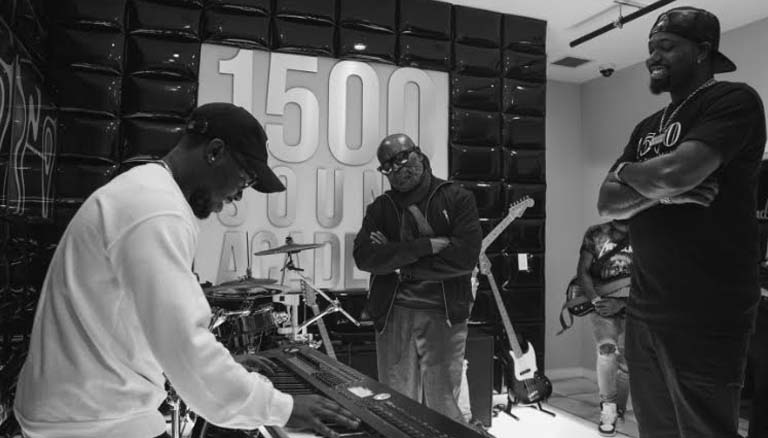The Path to Success in a Radio Producer Career
Are you passionate about music, storytelling, and creating captivating audio content? If so, a career as a radio producer might be the perfect fit for you. Radio producers play a crucial role in the production of radio shows, podcasts, and other audio broadcasts. They are responsible for overseeing every aspect of the production process, from brainstorming ideas to editing the final product. In this blog post, we will explore the skills and qualifications needed to pursue a successful career as a radio producer, as well as the steps you can take to break into this exciting industry.
1. Develop Strong Communication Skills
As a radio producer, effective communication is key. You will be working closely with a team of writers, hosts, sound engineers, and other professionals to bring your vision to life. It is important to be able to clearly articulate your ideas, provide constructive feedback, and collaborate with others. Strong communication skills will not only help you in working with your team but also in building relationships with guests, sponsors, and listeners.
2. Gain Hands-On Experience
While formal education can provide a solid foundation, gaining hands-on experience is crucial in the world of radio production. Look for internships or entry-level positions at radio stations, podcast production companies, or media organizations. This will allow you to learn the ins and outs of the industry, familiarize yourself with the equipment and software used, and develop your own creative style.
3. Hone Your Technical Skills
Radio production requires a solid understanding of audio editing software, recording equipment, and sound mixing techniques. Take the time to familiarize yourself with industry-standard software like Pro Tools, Adobe Audition, or Audacity. Experiment with different recording techniques and learn how to manipulate sound to create a polished and professional final product.
4. Build a Strong Portfolio
In the competitive world of radio production, having a strong portfolio can make all the difference. Start by creating your own projects, whether it’s a podcast, a radio show, or a series of audio documentaries. Showcase your range of skills, from scriptwriting to sound design, by including a variety of samples in your portfolio. Consider creating a personal website or using platforms like SoundCloud or YouTube to showcase your work.
5. Network, Network, Network
Networking is crucial in any industry, and radio production is no exception. Attend industry events, join professional organizations, and connect with professionals in the field. Social media platforms like LinkedIn and Twitter can also be valuable tools for connecting with industry leaders and staying up to date with the latest trends and opportunities.
6. Stay Updated with Industry Trends
The world of radio production is constantly evolving, with new technologies and trends emerging all the time. Stay updated with industry news, listen to popular podcasts and radio shows, and follow influential figures in the industry. This will not only help you stay ahead of the curve but also inspire you with new ideas and approaches to your work.
7. Consider Further Education
While not always necessary, further education can provide you with a competitive edge in the job market. Many universities and colleges offer programs in radio and audio production, providing you with the opportunity to further hone your skills and learn from industry professionals. New York University (NYU) offers a Business of Entertainment, Media, and Technology program, which includes courses specifically focused on radio production.
Breaking into the radio production industry may seem challenging, but with the right skills, experience, and determination, you can achieve your career goals. Remember, success in this field often comes from a combination of talent, hard work, and networking. So, start building your skills, creating your portfolio, and connecting with others in the industry. With dedication and perseverance, you can turn your passion for audio into a rewarding radio producer career.
Key Takeaways:
- Effective communication skills are essential for a radio producer to collaborate with team members, guests, sponsors, and listeners.
- Gaining hands-on experience through internships or entry-level positions is crucial in the world of radio production.
- Hone your technical skills by familiarizing yourself with industry-standard software and experimenting with different recording techniques.
- Build a strong portfolio showcasing your range of skills, from scriptwriting to sound design, using platforms like SoundCloud or YouTube.
- Networking is crucial in the industry, so attend events, join professional organizations, and connect with professionals in the field.
- Stay updated with industry trends by following influential figures, listening to popular podcasts, and staying informed about new technologies.
- Consider further education to gain a competitive edge, with the NYU Business of Entertainment program offering courses focused on radio production.
To further enhance your skills and knowledge in radio production, consider enrolling in the NYU Business of Entertainment online course and certificate program offered by Yellowbrick. This program will provide you with valuable insights and guidance from industry experts, helping you take your radio producer career to new heights. Embrace the opportunities available to you and pave your way to success in the dynamic world of radio production.




